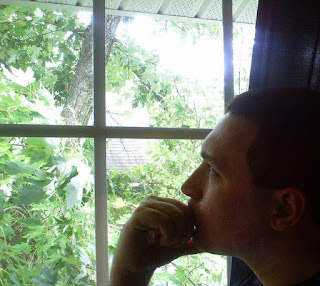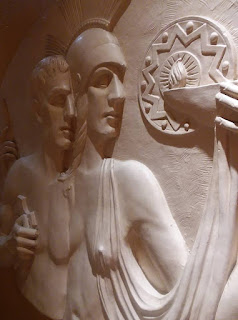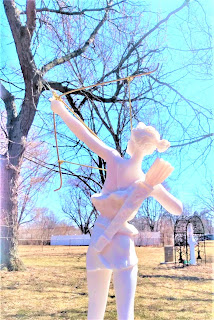
Hellenism is sometimes thought of as a priest-free religion. This claim is both true and false. True in the fact that we do not have priests in the Christian sense. We are not dictators of worshipers or intercessors for Gods. No person needs us to connect with the Higher Powers. Anyone, being so inclined, can approach the Gods in prayer, sacrifice and divination. Anyone can also build or open their own temple or sanctuary. In short, no one needs a priest to be a Hellenist, at all. The Hellenic priest or priestess does not even spiritually own the temple or sanctuary in which they serve. It belongs to the God or Gods it represents. For example, in ancient times, you would not have been called the priestess of the Parthenon, but the priestess of Athena Parthenos. The temple is Her home, and only Her's. And while there was, at one time, an altar to The Dodekatheon (The Twelve Gods) in the Athenian Agora in 522 BCE, there was no temple to all of the Gods. Temples and sanctuaries were dedicated to one God or even one Epithet of that God.
But the claim is false in the idea that ancient Hellenism had no clergy or leaders. There were absolutely priests and priestesses of temples and sanctuaries, and leaders in seership, prophecy and public rites. Priests and priestesses are servants of the Gods, caretakers of temples and sacred areas, protectors, advisors and counselors of their Demos (community), and leaders of rites and sacrifices to see that such functions are properly carried out. And last but not least, we never stop being students of Hellenism. Clergy are very valuable to Hellenism today for several reasons. We are a very small religion, even within Paganism and Polytheism, and therefore Hellenists may find little to no resources, support or education without dedicated and experienced practitioners. I can't list how many times people have called or messaged me throughout the years for help in practicing the religion. And while a practitioner can do anything on their own, it's nice and supportive to have someone to turn to for services instead of having to rely on someone like a Universal Minister who probably has no idea about Hellenism whatsoever.
Walking a little more down the ancient road, the first known record of ancient Greek priesthood comes from the Linear B tablets of the Mycenaean Age (the Homeric civilization that fell by 1199 BCE shortly after the Trojan War). It may be rather fortunate that Mycenae was destroyed by fire, because it preserved the clay tablets instead of decimating them. They tell us that priesthood was already well-rooted in society by this Era. Priests kept guard over temples and maintained the sole power to unlock their doors. In short, they held the only keys. Not just anyone was given responsibility or access, which shows that priests and priestesses were highly valued. Not only were they charged with the typical rites and sacrifices, but they also presided over oath-taking, marriages, and burials. Normally, clerical offices were assigned by sex - priests for Gods and priestesses for Goddesses. Although this wasn't always the case; the Oracle of Delphi is an example of the deviation from that norm.
In The Iliad, Book 1, the Trojan conflict begins with Apollon's Trojan priest, asking Agamemnon and the Achaeans to return his daughter they had captured. The priest made this petition in the most generous and humble terms. When Agamemnon refuses and treats the priest with hostility, Apollon becomes so enraged that He descends from Olympos and starts shooting the Greeks dead with His arrows. Only when Agamemnon returned the child and made proper sacrifice, did the Archer relent. This tells us that not only were priests and priestesses loved by the Gods, but Greek culture potentially paid a heavy price for wronging them.
If one wanted to become a priest in ancient times, there were several ways they could go about it. However, it wasn't a full time job. Clergy were normally chosen for a specific time or event. The first way, and probably the oldest, was by a hereditary line. If your mother or father held a priesthood during their life, the office could be passed down to you, along with the education of the office. The second way was through rulership. If you held an administrative power in the City government, especially as a Head of State, you could be tasked with certain clerical duties of that City. Various other ways to priesthood were elections chosen by lot, appointments, or even purchasing (the latter being the most rare). I would also say that someone is automatically the priest or priestess of a temple or sanctuary they establish.
If you've decided to become a priest or priestess, you likely feel it as a calling and even a duty. You would have to, because the commitment of dedicated clergy requires it. I've been a priest since 2010, and I can tell you that you have to commit yourself to seeing the best and worst of the world. You will do many other things with your life, but none will likely compare. It's a serious job you have to enjoy and feel responsible for, never taken with a light heart. The good side is that I get to lead rites, run my temple, write books and blogs, and do public speeches. The bad, or less than good side, is that I may have to do a burial for a child, go visit a dying person, or help the extremely ill and disabled. One might even find themselves visiting areas of natural disasters. I imagine that the Pythia didn't always have happy questions or easy advice to give. People had far more troubles in ancient times than they do now. She probably had to hear unpleasant things and counsel people as best she could, and also worry about what happened to people who misinterpreted her. Life at Delphi wasn't always the shining gold, silver and bronze gifts from the City States that decked the grounds. Yet she still did her job. If you're serious about it, it's not always an easy profession. You don't have to put yourself in danger, but there's a lot more that may call you than just the sunshine and roses. It can work on you, and the life itself always requires study and commitment, both to the Gods and your fellow man. That's why I get frustrated when I see people grasping for ordinations for mere prestige or because they want some kind of authority over something.
However, I will still argue that being a priest is more delightful than anything else. Even though it was not a way of life in ancient Greece, I can think of nowhere else I'd rather be than in my temple, making sacrifices, and caring for all things spiritually dear.
Along your path to becoming a priest or priestess, you should first consider it a priority to gain at least a basic knowledge of the religion and the clerical duties from credible sources, and understand that such a pursuit never ends; you are always learning. I always tell people that the easiest way to do this all your life is read, read, and read some more. Read every credible source you can get your hands on. Read Greek myth and philosophy as well. In fact, be steeped in it. There is a great wealth of diversity in the myths and the great thinkers of ancient Greece. It will help you realize your own beliefs and worldviews, and I dare say, turn you into a philosopher yourself. Finally, establish your own temple or sanctuary. That will be the most readily available avenue for you to enter the role of a priest or priestess. I did a blog post in the past on how someone can establish their own such community and keep it. To read, follow the link in the sources at the bottom of this post.
In ending this discussion, my goal is to make the reader realize that clergy is a journey, not a destination. Do you have the drive, wonder and love to take it? If so, then may Olympos smile on you. If not, that's okay too. Personally, I think the Pagan and Polytheistic communities have too many leaders and not enough followers. It's fine to just be who you are.
In the Goodness of the Gods,
Chris Aldridge.
Sources:
Burket, Walter, Greek Religion, Blackwell Publishing, Malden, MA, 1985.

.jpg)















